CONNECT
Discovery Building
330 N. Orchard Street
Madison, WI 537151.608.316.4339
Space and events rental:
DiscoveryEvents@discovery.wisc.edu
608.316.4534
UW–Madison Land Acknowledgement
The Office of Compliance occupies ancestral Ho-Chunk land, a place their nation has called Teejop (day-JOPE) since time immemorial. In an 1832 treaty, the Ho-Chunk were forced to cede this territory. Decades of ethnic cleansing followed when both the federal and state government repeatedly, but unsuccessfully, sought to forcibly remove the Ho-Chunk from Wisconsin.
We acknowledge the circumstances that led to the forced removal of the Ho-Chunk people, and honor their legacy of resistance and resilience. This history of colonization informs our work and vision for a collaborative future. We recognize and respect the inherent sovereignty of the Ho-Chunk Nation and the other 11 Native Nations within the boundaries of the state of Wisconsin.
We acknowledge the circumstances that led to the forced removal of the Ho-Chunk people, and honor their legacy of resistance and resilience. This history of colonization informs our work and vision for a collaborative future. We recognize and respect the inherent sovereignty of the Ho-Chunk Nation and the other 11 Native Nations within the boundaries of the state of Wisconsin.
LAND ACKNOWLEDGEMENT
FOLLOW
QUICK LINKS

Feedback, questions or accessibility issues: media@wid.wisc.edu Privacy Notice | © 2025 | Board of Regents of the University of Wisconsin System

